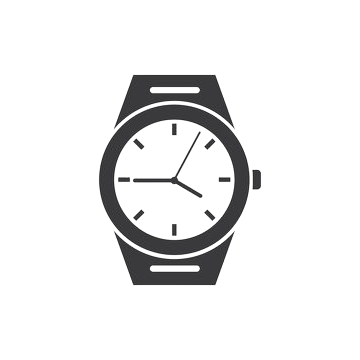The world of horology has long been divided into two distinct camps: mechanical and quartz watches. Each type has its own passionate advocates, strengths, and weaknesses, leading to an ongoing debate that continues to captivate watch enthusiasts and casual buyers alike. Understanding the differences between these two technologies is essential for anyone looking to invest in a timepiece, as each offers unique benefits and experiences. This article explores the characteristics, advantages, and challenges of mechanical and quartz watches, shedding light on the enduring discussion in watch technology.
Mechanical Watches: Craftsmanship and Tradition
Definition and Functionality
Mechanical watches are powered by intricate mechanical movements. They rely on a series of gears, springs, and other components that work together to measure time. There are two main types of mechanical watches: manual and automatic.
- Manual Mechanical: These require regular winding by the user to function.
- Automatic Mechanical: These wind themselves through the natural motion of the wearer’s wrist.
Advantages of Mechanical Watches
- Artistry and Craftsmanship: Mechanical watches are often seen as works of art, showcasing the intricate craftsmanship involved in their creation. The beauty of their movements can be admired through transparent case backs.
- Longevity: With proper care, mechanical watches can last for decades or even generations. Many collectors appreciate vintage pieces, which often carry a history and charm that is hard to replicate.
- No Battery Dependency: Mechanical watches do not require batteries, making them appealing for those seeking a sustainable timepiece.
- Emotional Connection: The act of winding a manual watch or wearing an automatic can create a deeper connection between the wearer and the watch, enhancing the overall experience.
Challenges of Mechanical Watches
- Accuracy: While mechanical watches can be precise, they are generally less accurate than quartz watches. They may require regular maintenance to keep time accurately.
- Cost: Due to the intricate craftsmanship involved, mechanical watches can be significantly more expensive than their quartz counterparts.
- Fragility: Mechanical movements can be sensitive to shocks and temperature changes, necessitating careful handling.
Quartz Watches: Precision and Convenience
Definition and Functionality
Quartz watches use a battery and a quartz crystal to keep time. When an electrical current passes through the quartz, it vibrates at a precise frequency, which is used to regulate timekeeping. This technology, first introduced in the late 1960s, revolutionized the watch industry.
Advantages of Quartz Watches
- Accuracy: Quartz watches are renowned for their precision, typically gaining or losing only a few seconds per month. This level of accuracy is a significant advantage for many users.
- Affordability: Generally, quartz watches are more affordable than mechanical watches, making them accessible to a broader audience.
- Low Maintenance: With fewer moving parts and no need for regular winding, quartz watches require minimal maintenance, making them convenient for everyday use.
- Durability: Quartz movements are typically more robust and less sensitive to environmental factors, such as shock and temperature.
Challenges of Quartz Watches
- Battery Dependency: While convenient, quartz watches require battery replacements, which can be seen as a drawback for some users.
- Less Emotional Connection: The mechanical complexity and artistry of quartz watches can feel less engaging compared to the craftsmanship of mechanical models.
- Limited Lifespan: Although quartz watches can last a long time, their lifespan is often shorter than that of well-maintained mechanical watches, especially if the battery isn’t replaced promptly.
The Ongoing Debate: Personal Preference and Lifestyle
The choice between mechanical and quartz watches often boils down to personal preference and lifestyle. Mechanical watches appeal to those who value craftsmanship, tradition, and the emotional connection that comes with a manual or automatic movement. Collectors and enthusiasts often gravitate toward mechanical timepieces for their artistry and history.
On the other hand, quartz watches cater to individuals seeking accuracy, convenience, and affordability. Their practicality makes them an ideal choice for those who prefer a no-fuss approach to timekeeping.
The Best of Both Worlds
Interestingly, many brands have started to bridge the gap between mechanical and quartz technologies. Hybrid models combine the craftsmanship of mechanical movements with the accuracy and reliability of quartz technology. These innovations reflect the evolving landscape of watchmaking and the desire to cater to diverse consumer preferences.
Conclusion
The debate between mechanical and quartz watches is as timeless as the timepieces themselves. Each type has its own unique attributes, catering to different needs and preferences in the world of horology. Whether you’re drawn to the intricate artistry of a mechanical watch or the precision of a quartz model, both technologies offer compelling reasons to appreciate the art of watchmaking. Ultimately, the best choice lies in understanding what you value most in a timepiece—craftsmanship, accuracy, or a blend of both—and selecting a watch that resonates with your personal style and lifestyle.



